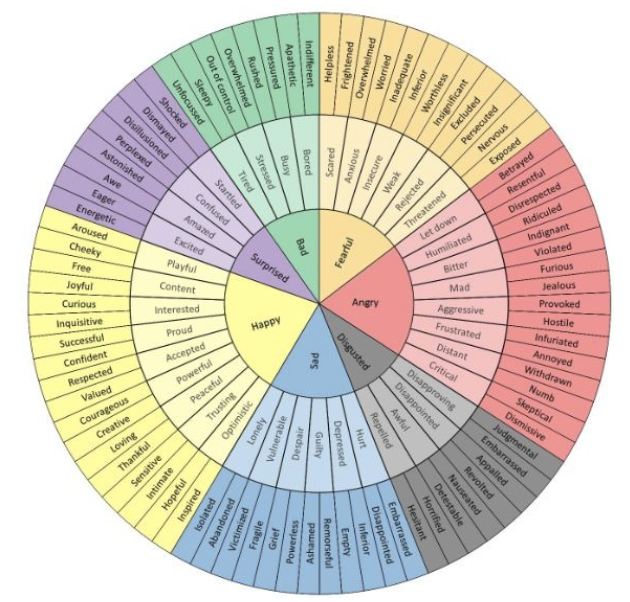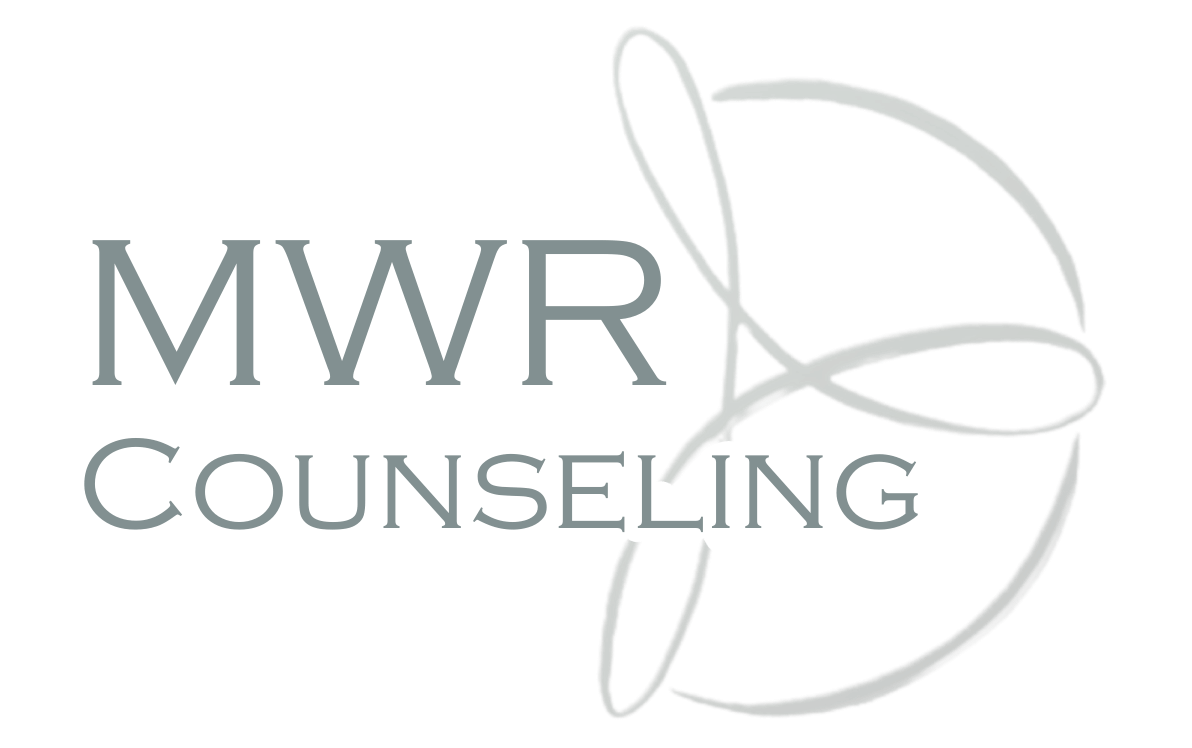Managing Anxiety through Awareness

By Molly Martin, LISW
Have you ever experienced anxiety that seemed to have come on out of nowhere? One minute you feel fine, and then suddenly your heart is pounding, your hands are shaking, and your thoughts are moving a mile a minute. It’s common for people to feel that these experiences are unpredictable, but most of the time if we look a little closer we are able to identify the trigger – and if we can identify the trigger, then we are one step closer to being able to cope with and decrease these experiences.
 One of the most important elements in this process is awareness – specifically, awareness of feelings and body sensations. For most people who are struggling to cope, communicate, or meet daily expectations, at least part of the problem tends to be related to a lack of awareness. Everyone lacks awareness at times. We get busy, overwhelmed, or stuck in routines, and before long we’ve lost sight of what’s really at the root of what’s causing our distress.
One of the most important elements in this process is awareness – specifically, awareness of feelings and body sensations. For most people who are struggling to cope, communicate, or meet daily expectations, at least part of the problem tends to be related to a lack of awareness. Everyone lacks awareness at times. We get busy, overwhelmed, or stuck in routines, and before long we’ve lost sight of what’s really at the root of what’s causing our distress.
There are a number of techniques that you can work on to assist in development of awareness for yourself. Each of these will build upon each other, and will create the foundation for more intensive work you may complete in therapy.
Feelings
Anxiety often arises due to unresolved feelings. When we avoid or suppress feelings as they arise they continue to affect us, both emotionally and physically. Over time this can build up and result in what we experience as anxiety. So, managing the underlying feelings is an important step towards reducing anxiety.
 People need to develop a language to describe the feelings they are experiencing. Expanding your knowledge and vocabulary of the feelings you are experiencing will enhance your ability to both identify and effectively communicate how you are feeling. Although this may seem like a fairly basic skill, it is normal for all people – children AND adults – to have a difficult time both identifying and putting their feelings into the right words.
People need to develop a language to describe the feelings they are experiencing. Expanding your knowledge and vocabulary of the feelings you are experiencing will enhance your ability to both identify and effectively communicate how you are feeling. Although this may seem like a fairly basic skill, it is normal for all people – children AND adults – to have a difficult time both identifying and putting their feelings into the right words.
If you are a parent, identifying and naming YOUR feelings helps increase your child’s vocabulary and understanding of feelings, AND shows them that it’s normal and okay to experience a wide range of feelings. The way that you express and cope with your feelings shows them that it’s possible to manage these in a healthy and respectful way.
If finding the right word to describe your feelings seems difficult, referencing a feelings wheel like this one can help. (http://feelingswheel.com)
Body Sensations
 When we talk about feelings we typically use words to describe the emotional experience we are having, but emotions are physical for us too! This is why we say we have “butterflies in our stomach”, feel “heartbroken”, or call annoyances a “pain in the neck”. When people do not have awareness of the body sensations they are experiencing and the corresponding thoughts and emotions, they don’t have an opportunity to manage it in healthy ways. However, we do recognize that something feels “off” or uncomfortable for us, and this can be a time when we turn to unhealthy methods of coping.
When we talk about feelings we typically use words to describe the emotional experience we are having, but emotions are physical for us too! This is why we say we have “butterflies in our stomach”, feel “heartbroken”, or call annoyances a “pain in the neck”. When people do not have awareness of the body sensations they are experiencing and the corresponding thoughts and emotions, they don’t have an opportunity to manage it in healthy ways. However, we do recognize that something feels “off” or uncomfortable for us, and this can be a time when we turn to unhealthy methods of coping.
These unhealthy methods allow us to release these uncomfortable body sensations. But, if we are aware of the sensation then we can choose to do something healthy to manage it!
Begin exploring your body sensations by completing a body scan: start at the top of your head and move slowly down to your toes, while checking in with each part of your body. Does it feel tense? Relaxed? Identify what each part is trying to communicate to you. If a sensation feels uncomfortable for you, what would help you to release that discomfort? For example:
- If your chest feels tight, take some deep breaths.
- If your neck/shoulders feel tense, try a progressive muscle relaxation exercise, like this one: https://www.verywellmind.com/how-do-i-practice-progressive-muscle-relaxation-3024400
- If your whole body feels shaky and you can’t sit still, go for a walk/jog.
AWARENESS IS THE GREATEST AGENT FOR CHANGE.
– ECKHART TOLLE
Meditation and Mindfulness
The use of meditation and mindfulness assists us in being present in the moment. There are countless benefits of using these as a part of your daily routine. They help us be aware of what’s happening in our minds and bodies. They help us to calm our stress responses. And they help us to be present and “in the moment”, rather than worrying about the past or future. Using these techniques can take some practice, so be patient with yourself as you get started. It is normal for people to find that their mind wanders and it’s difficult to remain completely focused throughout these exercises – simply become aware that your mind has wandered and then bring it back to your focus.

Try these activities to start practicing meditation and mindfulness:
- Learn and practice deep belly breathing: imagine your belly filling up like a balloon as you inhale to a count of 4, then deflate as you exhale to a count of 4. Simply focus on your breath as you steadily inhale and exhale.
- Consider using an app to guide your practice, such as: Calm, Insight Timer, Breathe, or 10% Happier.
- Engage your entire family in mindfulness practice:
- Have a mindful minute as you sit down to eat dinner. Take one minute to quietly take notice of each of your senses – what can you see, smell, hear, taste, and feel? Then discuss as you eat dinner together.
- Go on a mindful walk around the block and see how many things you can notice going around you – birds chirping, the breeze on your skin, the smell of fresh cut grass, etc.
- While waiting in a line, look for something in each color of the rainbow and then discuss what you each found.
Taking these initial steps to increase your awareness ofyour own feelings and sensations, as well as what’s goingon around you, can help you develop insight into theexperiences and emotions that trigger anxiety for you, aswell as begin to take steps to manage it. Start small andsee the difference it begins to make for you!
Content provided in this blog post is for informational purposes only. Content is not intended to be a substitute for professional recommendations, diagnosis, or treatment. Always seek care from a mental health professional or other qualified health care provider with any questions you may have regarding your condition.
Please contact one of our skilled and trained mental health providers at MWR Counseling at (319) 693-5694 if you believe you would benefit from receiving professional mental health care. If you think you are in a mental health crisis, please call the Foundation 2 Crisis Line at 1 (800) 332-4224; if you are experiencing an emergency, please dial 911.




